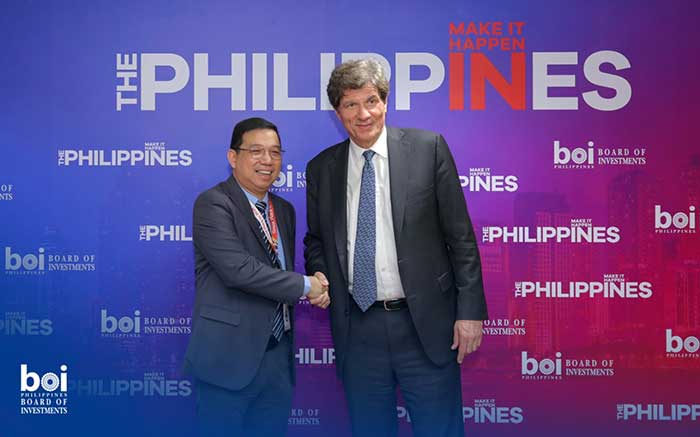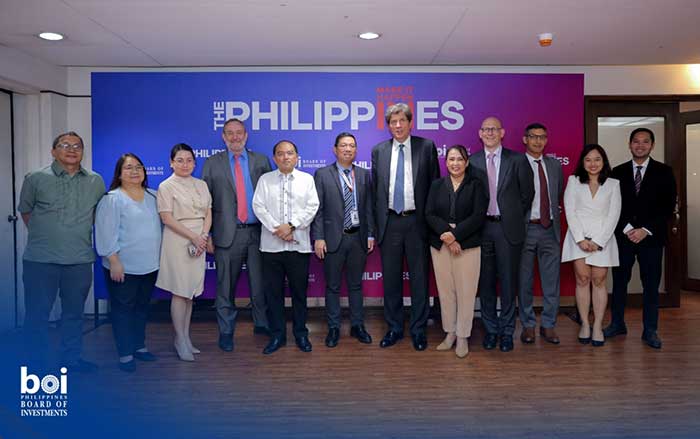The Philippine Board of Investments (BOI), in a pivotal meeting with United States Department of State Under Secretary for Economic Growth, Energy, and the Environment Jose Fernandez, discussed the challenges, opportunities and competitive advantages in the Philippines, with a focus on the semiconductor and critical minerals industries.
“We welcome this strategic collaboration with the United States in semiconductors and critical minerals. This partnership not only reinforces the Philippines’ position as a key player in the global economy but also opens avenues for mutual growth and innovation. Together, we are charting a course toward sustainable development and economic resilience.” BOI Managing Head and Trade Undersecretary Rodolfo said in his opening remarks.
During the dialogue, US Under Secretary Fernandez acknowledged the Philippines’ significant growth in semiconductors and critical minerals industries, highlighting its well-educated and highly-trainable workforce.
He committed to providing the Philippines an audience with the Minerals Security Partnership (MSP), a collaboration of 13 countries and the EU, which aims to catalyze public and private investment in responsible critical minerals supply chains globally. As both countries work together to engage other nations to do mineral refining in the Philippines, the US is ready to assist in the technical processes as the Philippines prepares a work plan on critical minerals.
Shifting the focus to semiconductors, the US shared that the Philippines is among the six (6) countries it will be supporting under the CHIPS Act. Recognizing the potential of the country’s semiconductor industry supplemented by its talent pool, the assistance will be focused mainly on assembly, testing, and packaging. In a proactive move, the US also announced that its US International Development Finance Corporation will establish a more permanent presence in the Philippines by February.
Meanwhile, the Philippines shared its plans to venture into semiconductor design. The BOI is looking into the establishment of a lab-scale wafer fabrication plant. Utilizing a more generic technology for commercial and educational purposes, the wafer fab lab aims to train and upskill the workforce, while enabling the local industry to do prototyping and some tape outs of semiconductor chip designs in the country instead of bringing them all the way to Taiwan. The Agency also shared, that it is already finalizing its goal to produce 128 thousand semiconductor-related engineers and technicians by 2028 to support the development of the country’s semiconductor industry.
Noting that the Philippines regularly participates in the OECD Southeast Asia Regional Program, the US invited the country to join the OECD Semiconductor Informal Exchange Network. The US emphasized its goal of implementation rather than the discussion of policy ideas.
Looking ahead, the upcoming OECD Interim Economic Outlook for 2024 is anticipated to provide valuable insights on how to develop further the local semiconductor ecosystem with possible funding under the CHIPS Act.
Undersecretary Rodolfo also provided an overview of the country’s economic landscape and touched on significant investments, particularly in renewable energy. The discussion expanded to encompass electric vehicles and green metals, showcasing the growing importance of these emerging sectors, and underscored the government’s continuous effort to implement policy reforms to facilitate ease of doing business in the Philippines through Executive Order 18, Constituting Green Lanes for Strategic Investments.
With a pronounced shift towards using and developing cleaner and more sustainable sources of energy, the Philippines is not only positioning itself as an attractive investment destination but also contributing to global efforts for a greener future.
The meeting concluded on a positive note, with both nations expressing optimism about future collaboration and economic growth.
The meeting on January 30, 2024 also witnessed the participation of key officials from the Departments of Trade and Industry (DTI), Foreign Affairs (DFA), Energy (DOE), Environment and Natural Resources (DENR), Science and Technology (DOST), and the National Security Council (NSC).























